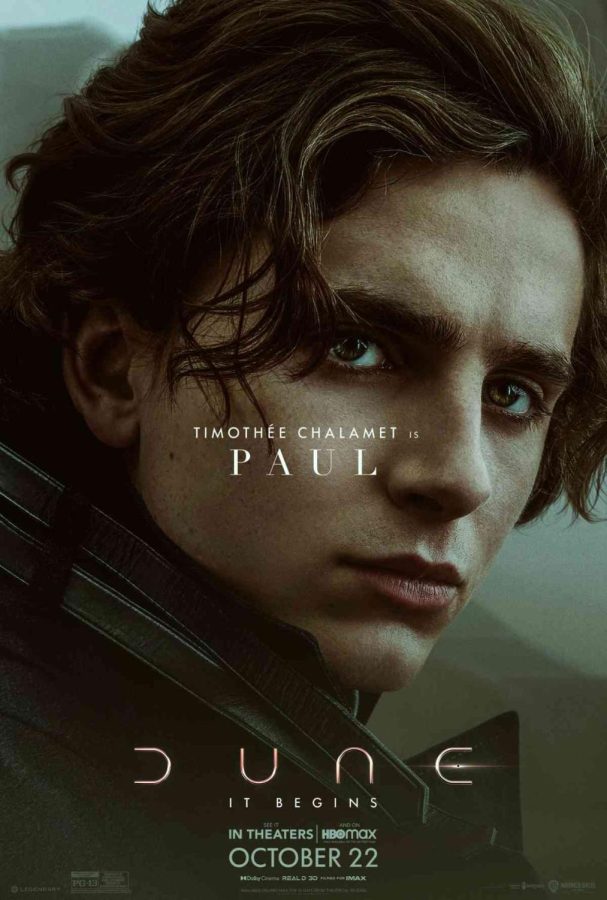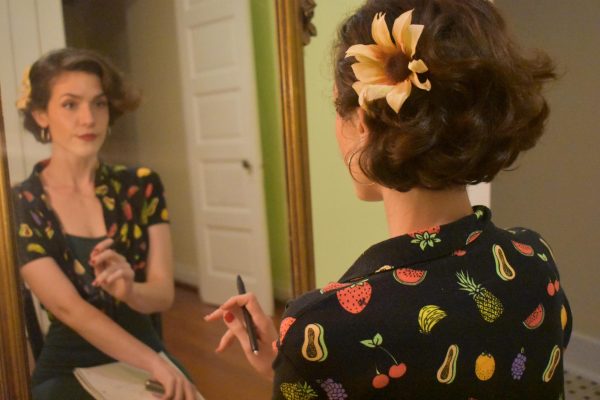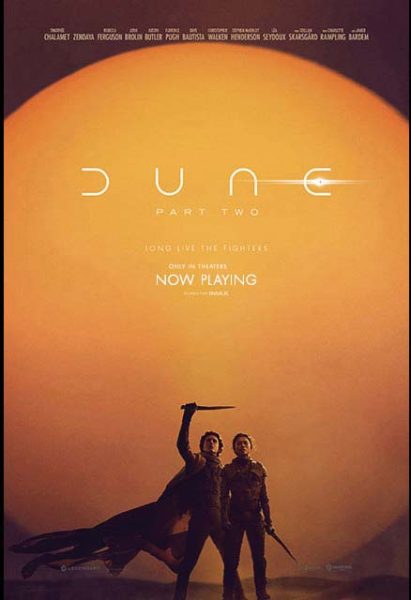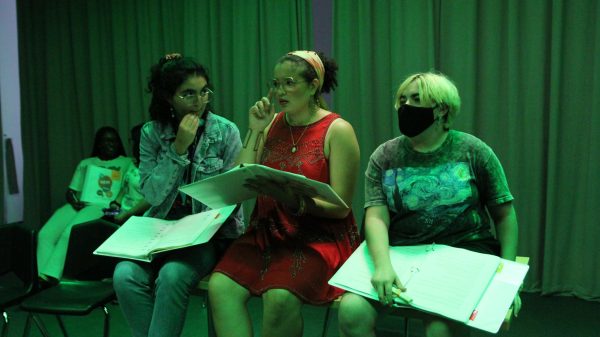“Dune” review: A brave new (spice) world
When I first heard about Denis Villeneuve adapting Frank Herbert’s novel “Dune” for the big screen, I became anxiously excited. I had seen his previous film “Blade Runner 2049,” an exceptional sequel arguably on par with the original Ridley Scott film, so I was eager to follow whatever the French-Canadian director came up with next. I did my research by reading the novel and also watched David Lynch’s maligned adaptation from 1984. As I slowly familiarized myself with Herbert’s expansive universe filled with intrigue and desert power, I was anxious to see just what Villeneuve can bring to the table.
Needless to say, I was more than impressed. Villeneuve’s “Dune” is an epic spectacle that transcends its unwieldy source material. It presents the same experience that anyone who first saw “Star Wars,” “The Matrix,” or “Lord of the Rings” must have felt when they first watched it in theaters. “Dune” is more than a prologue to adventures that lay ahead, as it is equal parts sumptuous and intimate.
Set ten thousand years into the future, the film focuses on Paul Atreides (Timothée Chalamet), son of Duke Leto Atreides (Oscar Isaac) and Lady Jessica (Rebecca Ferguson). Paul dreams of the desert planet of Arrakis, with its tribe of blue-eyed natives called the Fremen and specifically a mysterious girl named Chani (Zendaya). Her mother, a member of the Bene Gesserit religious order, thinks that her son’s newfound ability to see into the future may precede his destiny as the Kwisatz Haderach, a messianic figure coming to save the Fremen.
Meanwhile, the Emperor has assigned House Atreides to rule Arrakis, the only source of the “spice” which is essential for human vitality and interstellar travel. However, their rival House Harkonnen, led by the terrifying Baron (Stellan Skarsgard), lies in wait to strike. Seeing Duke Leto as a threat to his throne, the Emperor plots to lure House Atreides to their imminent destruction.
If that plot summary sounds like a handful, there’s more. More characters to know, more planets to explore, more traditions to keep track of. More, more, more. It’s partly the reason why Villeneuve’s film tackles the first half of Herbert’s novel, which may strike some as anticlimactic. But to the uninitiated, one must understand that the book has been notoriously difficult to adapt into a feature film several times. In particular, Lynch’s adaptation basically squeezed the entire book into a truncated film with plot holes, one-dimensional characters, and in-your-face exposition.
While Lynch’s “Dune” has since been reassessed as a point of comparison to Villeneuve’s version, the latter easily blows the former out of the water. Where Lynch delves into surrealism that may have unintentionally tapped into the campiness of 1980s blockbusters, Villeneuve understands the massive scope of Herbert’s universe enough to warrant making two parts. This capacity for interconnectedness is not surprising, with the MCU’s affinity for world-building nowadays rewarding avid viewers with the sense of scope. In Villeneuve’s case, his decision to make “Part One” makes sense, as his tendency to let the individual scenes take their course pays off.
With that being said, introducing a fictional universe steeped in lore is tricky to pull off in film. There is so much exposition in the world of “Dune” that may baffle the unseasoned viewer, but Villeneuve manages to do a satisfactory job of delivering it in a manner that does not feel forced. For instance, where Lynch’s version has an opening scene that famously shows the Emperor’s daughter Princess Irulan (Virginia Madsen) directly telling exposition to the viewer, Villeneuve opts to have Chani provide them in one of Paul’s recurring dreams. While it inevitably tests the patience of the viewer, this gambit is essential to enjoying the film no matter how “incomplete” it seems to be.
A film as epic as “Dune” is bound to have a sturdy backbone responsible for its grandiosity. Cinematographer Greig Fraser balances the epic and the intimate very well, from the sweeping deserts of Arrakis to the tense gom jabbar test, for example. Hans Zimmer’s score taps into the exotic aesthetics of the film’s world, with its emphasis on stirring vocals and prominent strings. Several cinematic allusions also feature prominently in the film, ranging from “Lawrence of Arabia” and “2001: A Space Odyssey” to the works of Ridley Scott and Christopher Nolan.
In addition, the ensemble cast carry their archetypal characters in keeping with Herbert’s vision. In particular, Chalamet pulls off the gradual confidence of a young man coming to terms with his destiny, while Ferguson possesses an enigmatic aura that belies her role as a member of the Bene Gesserit. Skarsgard’s quiet demeanor as the bald and egg-like Baron Harkonnen is somehow more terrifying than his pus-filled counterpart in Lynch’s version, being akin to Brando’s Colonel Kurtz from “Apocalypse Now.” Zendaya may have little screen time in this film, but she owns the role of Chani pretty well.
With “Dune,” Villeneuve has created another imposing science fiction film in keeping with his other equally impressive work. Its status as the first part in a sprawling work may strike some viewers as one long prologue amounting to virtually nothing, but it’s honestly a better approach compared to the mess that is Lynch’s version. With all that’s being said, Villeneuve’s “Dune” is an awe-inspiring spectacle with ambition that soars as far as the panoramic, spice-filled deserts of Arrakis.
“Dune” is now available on theaters and HBO Max. Click here to stream.


Ver Lumod is a digital filmmaking junior. He works as Reviews Editor for The Maroon. Ver has also written and directed short films. He regularly watches...











